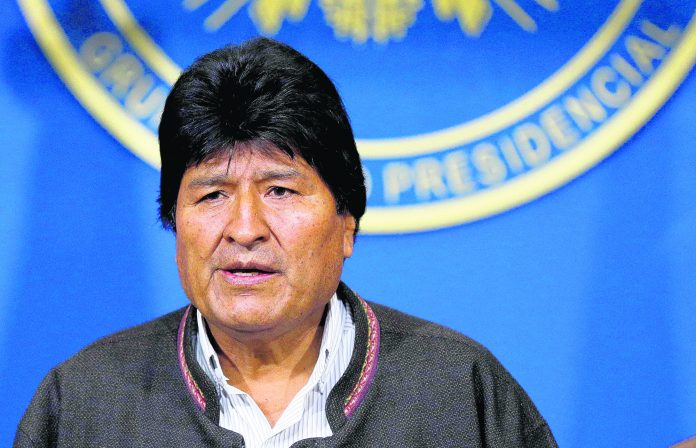
Bolivia’s Supreme Electoral Tribunal on Thursday rejected the candidacy of former President Evo Morales for a Senate seat in May’s national elections because he does not reside in the South American country.
Tribunal head Salvador Romero said at a news conference the decision cannot be appealed with the electoral board, though he added that Morales “can explore any judicial routes he sees as pertinent.”
The tribunal did accept the presidential candidacy of former economy minister Luis Arce of Morales’ Movement Toward Socialism party, who also faced a demand seeking his disqualification.
Morales is barred by law from seeking the presidency but wanted to run for a seat in the Senate.
Candidates are supposed to be residents of Bolivia, and Morales has taken refuge in Argentina while he faces charges in Bolivia connected to October’s allegedly fraudulent election.
Morales claimed that the since-annulled ballot re-elected him to a fourth term in office, but many opponents and an Organization of American States team raised questions about the vote count. He resigned the presidency and left Bolivia amid widespread protests and pressure from military leaders.
The country remains bitterly divided following the often-violent tumult that erupted before and after Morales was pushed to resign.
Besides Arce, the other presidential contenders for the May 3 election include centrist former President Carlos Mesa, who finished second in the October vote; interim President Jeanine Áñez, whose administration has worked to overturn many of Morales’ policies and prosecute his allies; and regional civic leader Luis Fernando Camacho, a major leader of protests in the eastern economic center of Santa Cruz.



















